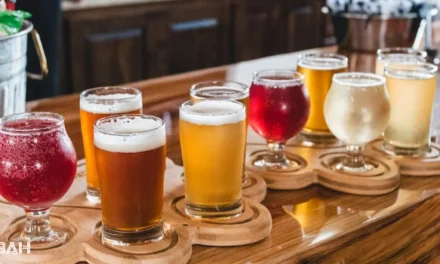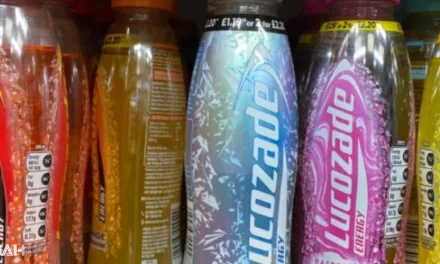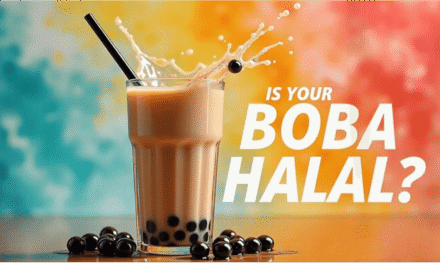Coca-Cola was invented in 1886 by pharmacist John Stith Pemberton in Columbus, Georgia. Originally marketed as a patent medicine, it was billed as a cure for many ailments and contained alcohol and cocaine.
The Coca-Cola Company was officially incorporated in 1892. The formula gradually evolved into the Coke we know today. Here is a timeline of key events:
1886 – John Pemberton invents original Coca-Cola syrup
1891 – Asa Griggs Candler acquires complete ownership of Coca-Cola business 1893 – Coca-Cola is sold in every state and territory in the US 1898 – The first Coca-Cola ad appears in national magazines
1919 – Coca-Cola Company is sold to Ernest Woodruff for $25 million 1923 – Contour bottle is patented, establishing Coca-Cola’s iconic image
Coca Cola is one of the most popular carbonated drinks in the world. The famous cola soft drink is sold in over 200 countries and consumed by millions every day. But there has been a long-running debate around whether Coca Cola is halal and permitted for Muslims to drink.
In this comprehensive guide, we’ll take an in-depth look at Coca Cola’s ingredients, manufacturing processes, and certification by Islamic authorities to answer the key question: Is Coca Cola halal or haram for Muslims to consume?
We’ll examine what Islamic dietary laws and scholars say about soft drinks like Coca Cola. You’ll also find out the different perspectives on factors like Coca Cola’s secret flavorings and use of traces of alcohol in production that have caused controversy over its halal status.
By the end, you’ll have a clear understanding of the evidence on both sides of this debate within the Muslim community. Let’s get started!
The Big Debate: Is Coca Cola Halal-Certified
Coca Cola’s halal status has been discussed and disputed for many years. There are conflicting views among Muslim consumers, scholars, and organizations over whether the popular fizzy drink is permissible under Islamic dietary laws.
Some Muslims believe drinking any amount of Coca Cola is haram and absolutely prohibited. They argue it contains alcohol or other forbidden ingredients.
Others think Coca Cola is completely halal and acceptable for Muslims to enjoy. They point to halal certification and testing that shows it has no alcohol or other haram substances.
There are also those in the middle who take the view that drinking small amounts of Coca Cola is permitted as long as it does not lead to intoxication. But they recommend avoiding excess consumption.
The major points of contention center around the secret flavor ingredients used, traces of alcohol in processing, and whether certification makes it conclusively halal. Let’s analyze each of these factors in detail.
Could Coca Cola’s Ingredients Make It Halal Or Haram?
According to most Islamic scholars, for food and drinks to be halal they must not contain any of the following:
-
Alcohol – Any amount of alcohol that causes intoxication is strictly forbidden in Islam.
-
Pork products – Pig meat and by-products like gelatin are haram.
-
Blood – Blood of any animal is prohibited.
-
Carnivorous animals – Any meat-eating animals like lions, dogs, bears, etc are forbidden.
-
Improperly slaughtered meat – Meat must be slaughtered according to the Islamic method known as Zabihah.
Coca Cola has long faced accusations that it contains alcohol or other impermissible substances like pork. However, the company insists its drinks contain no alcohol and are suitable for people of all faiths and cultures.
The exact recipe for Coca Cola is a closely guarded secret. It’s kept locked away in a vault at their headquarters in Atlanta. According to Coca Cola, their cola drinks typically contain:
- Carbonated water
- Sugar or sweeteners
- Caffeine obtained from the kola nut
- Phosphoric acid
- Caramel color
- Natural flavorings
Let’s look at each of these known ingredients and assess if they are halal or haram:
Carbonated water
Water is always halal in Islam. Adding fizzy carbon dioxide does not make water haram. So carbonated water used in soft drinks is permissible.
Sugar
Ordinary white granulated cane sugar is halal. In some Muslim countries, Coca Cola uses sugar instead of high fructose corn syrup which has been criticized by some Islamic scholars.
Caffeine
Caffeine derived from the kola nut is considered halal by most scholars. But some believe that consuming very large amounts of caffeinated drinks should be avoided.
Phosphoric acid
This food additive helps give cola its tangy flavor. Phosphoric acid found naturally in some foods and drinks is halal.
Caramel color
The caramel coloring in Coca Cola is made from food grade and halal ingredients like sugar, glucose syrup, and molasses. It does not contain any alcohol.
Natural flavors
This is the most controversial ingredient. Coca Cola does not publicly disclose what these “natural flavors” are or how they are processed. They only state that they use natural fruit, plant, or spice flavorings, not animal sources or alcohol. But the vagueness makes some Muslims uncertain about their halal status.
Overall, these known ingredients do not seem to include anything clearly prohibited according to Islamic law. But the lack of transparency over the exact natural flavors gives some room for doubt.
Is Diet Coke Halal
Diet Coke is considered halal and safe to consume by Muslims. The following points should be considered regarding Diet Coke’s halal status:
- Diet Coke does not contain alcohol from grapes or dates, which are the only types of alcohol that are explicitly forbidden in Islam.
- The wood alcohol in Diet Coke is not derived from grapes or dates, and therefore, it is not considered haram.
- The ingredients in Diet Coke are halal and safe to consume.
It is important to note that the halal status of a product may change over time, and it is always recommended to check the label and ingredients before consuming any food or beverage. Halal certification is a process by which a credible organization certifies that a company’s products or services comply with Islamic law and are permissible for Muslims. Halal certification offers a level of assurance to consumers, especially in non-Muslim countries where Halal food may not be easily identifiable. It also opens up market opportunities for businesses catering to the Muslim consumer base.
Could traces of alcohol in processing make Coca Cola haram?
According to Islamic dietary laws, if food or drink comes into direct contact with alcohol or other impure substances during manufacturing, it becomes haram. This includes if the production equipment has previously processed pork or alcohol.
Coca Cola has admitted that during the process of making the cola syrup concentrate, alcohol may be used in some facilities that also produce alcoholic drinks. This means traces of alcohol could potentially come into contact with the cola syrup.
However, Coca Cola insists that any trace alcohol is completely evaporated and removed before the syrup is used in making the final Coca Cola products. The company states that independent testing shows Coca Cola drinks contain 0.0% alcohol.
But some Muslims argue that microscopic residues of alcohol may still remain in the drink, making it haram even if it does not cause intoxication. Or the fact that the syrup production involves alcohol is enough to prohibit it.
This divergence shows why even tiny traces of alcohol can be a major point of contention regarding Coca Cola’s halal status.
What major Islamic organizations say about Coca Cola being halal
Many leading Islamic authorities and halal certification organizations have analyzed Coca Cola’s ingredients and production methods.
Most major bodies have certified Coca Cola products as halal, but some differences in opinion still exist. Let’s see what some key organizations conclude:
JAKIM (Malaysia)
Malaysia’s Department of Islamic Development (JAKIM) has officially certified Coca Cola products manufactured in Malaysia as halal. This allows them to carry the JAKIM halal logo.
JAKIM states on their website: “We certify that Coca-Cola is halal on the basis of thorough inspection and intensive audit of the manufacturing process including pre-production, production, and post-production.”
MUIS (Singapore)
Singapore’s Islamic Religious Council (MUIS) has also approved Coca Cola as halal after their checks found no alcohol or other questionable substances. Their halal certificate states:
“This is to certify that the Coca-Cola range of products manufactured by Coca-Cola Far East Limited have been verified and endorsed by MUIS as Halal under the Muslim dietary laws.”
Jamiatul Ulama (South Africa)
This council of Muslim theologians in South Africa have ruled:
“The Jamiatul Ulama can safely say that Muslims are allowed to consume Coca-Cola nationally as well as internationally.”
They believe Coca Cola meets halal guidelines and does not contain alcohol.
Indonesian Council of Ulama
The leading Islamic body in Indonesia announced in 2018:
“Coca-Cola company does not use alcohol or pork-derived gelatin in the halal-certification production process and products, so it is declared halal.”
Differing views
A minority of Islamic authorities still argue against Coca Cola’s halal status due to doubts over trace alcohol or unknown ingredients and favor certifying alternatives like Mecca Cola instead. But the majority of major certification bodies have declared Coca Cola halal.
What prominent Islamic scholars rule about Coca Cola’s halal status
Along with official certifying bodies, many highly influential Islamic experts have given their religious rulings and opinions on whether Coca Cola is permitted:
Permitted with conditions
-
Sheikh Dr Yusuf Al Qaradawi – This leading scholar based in Qatar states that Coca Cola and other soft drinks are halal as they contain no significant traces of alcohol that could cause intoxication. But he discourages drinking it excessively.
-
Mufti Mohammed Tosir Miah – This UK-based mufti says that Coca Cola is halal as long as it is proven the production process eliminates any alcohol. He also advises moderation.
-
Dr. Ahmad Shleibak – The former Sharia board head of Abu Dhabi Islamic Bank ruled Coca Cola halal as any alcohol is removed before the finished product. But he cautions against drinking too much.
Permitted in moderation
-
As-Sa’di – The late Saudi scholar permitted Coca Cola in moderation as long as it does not lead to intoxication.
-
Dar al-Ifta al-Misriyyah (Egypt) – Egypt’s fatwa issuing body states Coca Cola is halal but should be drunk in moderation, not excess.
Prohibited
-
Saleh Al-Fawzan – This prominent Saudi cleric believes Coca Cola is haram because the production process involves alcohol making it impure, regardless of amount in final drink.
-
Al-Qaradaghi (Qatar) – This Qatar-based scholar ruled that Coca Cola is haram citing uncertainty over secret ingredients and alcohol used in production.
As we can see, mainstream Sunni scholars largely permit Coca Cola in moderation but some strict interpretations completely prohibit it.
Is Coca-Cola Halal – Frequently Asked Questions
Coca Cola is considered halal as it does not contain any ingredients that are haram (forbidden) according to Islamic dietary laws. Its ingredients have been deemed permissible for consumption by Muslims.
Does Coca Cola have halal certification?
Coca Cola does not possess a specific halal certification. However, its ingredients and production processes have been thoroughly reviewed by Islamic scholars, and it is considered halal based on their analysis. The Coca Cola Company takes great care to ensure that its products comply with Islamic dietary guidelines.
Are Coca Cola products halal or haram?
Coca Cola products are generally considered halal. The ingredients used are permissible, and they do not include any haram substances. Nevertheless, it is always recommended to check the ingredients list to verify the halal status of a specific Coca Cola product.
Does Coca Cola contain alcohol?
Coca Cola does not contain alcohol as an ingredient. It is a carbonated beverage made from a mixture of carbonated water, syrup, and flavorings. However, it is important to note that there is a very small amount of alcohol content, less than 0.01%, that may be present due to natural fermentation processes.
Can Muslims consume Coca Cola?
Yes, Muslims can consume Coca Cola as it is considered halal. Islamic scholars have reviewed its ingredients and production processes and determined that it is permissible for Muslims to consume.
Is Coca Cola certified by Islamic organizations?
While Coca Cola does not possess a specific halal certification from Islamic organizations, it has been thoroughly reviewed by Islamic scholars who have confirmed its halal status. There is no legal requirement for a halal certification, as long as the ingredients and production methods align with Islamic dietary laws.
Does Coca Cola contain any haram substances?
No, Coca Cola does not contain any haram substances. The ingredients used in Coca Cola products are carefully selected to ensure they meet the halal requirements and do not include any forbidden or haram components.
What are the main ingredients in Coca Cola?
The main ingredients in Coca Cola include carbonated water, syrup (a combination of sugar and flavorings), and various natural and artificial flavorings. It may also contain caffeine, caramel color, and phosphoric acid.
Conclusion
After this detailed exploration of Coca Cola’s ingredients, manufacturing methods, halal certification, and Islamic scholarly rulings, what final conclusion can we reach on its halal status? Here is a summary:
-
Coca Cola’s main ingredients like carbonated water, sugar, caffeine and phosphoric acid appear to be halal. The contentious area is the unrevealed “natural flavors”.
-
Coca Cola insists its products are non-alcoholic and this is confirmed by testing. But traces of alcohol may come into contact during syrup processing according to critics.
-
The most major Islamic halal certification bodies like JAKIM, MUIS and Jamiatul Ulama have declared Coca Cola halal after inspections. But some organizations and scholars disagree.
-
The vast majority of prominent scholars permit Coca Cola in moderation, stating any traces of alcohol are nullified and it does not cause intoxication. But a minority view prohibits it outright.
In Islam, there is often ikhtilaaf (divergence of opinions) among scholars on fiqh (jurisprudence) matters like this. Based on the ingredients, manufacturing processes, and mainstream scholarly views, the evidence suggests that consuming Coca Cola would be halal and permissible according to the majority of Islamic experts.
But more conservative or cautious Muslims who only follow stricter interpretations may wish to avoid Coca Cola or verify it themselves. For them, the traces of alcohol and unclear flavorings could be an issue. Ultimately, Muslims should make their own informed decision based on the evidence.
Key points to remember about Coca Cola’s halal status in Islam:
-
The main ingredients in Coca Cola like water, sugar, caffeine and carbon dioxide are all halal. The uncertainty lies with the undisclosed “natural flavors”.
-
Coca Cola states its drinks are completely non-alcoholic, but traces of alcohol may come into contact with the syrup during processing according to some sources.
-
Major halal certification bodies like JAKIM in Malaysia and MUIS in Singapore have officially certified Coca Cola products as halal after inspections.
-
Most prominent Islamic scholars permit Coca Cola in moderation as they believe any traces of alcohol are insignificant and it does not intoxicate.
-
More conservative scholars prohibit Coca Cola due to doubts over ingredients, production methods and the existence of trace alcohol.
-
Muslims who only follow strict scholarly views may wish to avoid Coca Cola to be cautious. But the mainstream evidence suggests it is halal for consumption in moderation.
So in summary, while some differences in opinion remain on factors like alcohol traces and ingredients, most evidence indicates that Coca Cola is considered halal by the majority of Islamic authorities. But observant Muslims may prefer to exercise caution or verify it themselves.
I hope this detailed exploration of Coca Cola’s halal status from multiple angles has been helpful. Let me know if you have any other questions!





